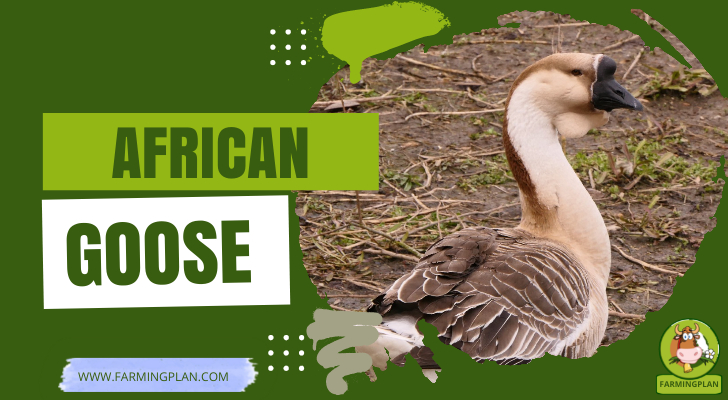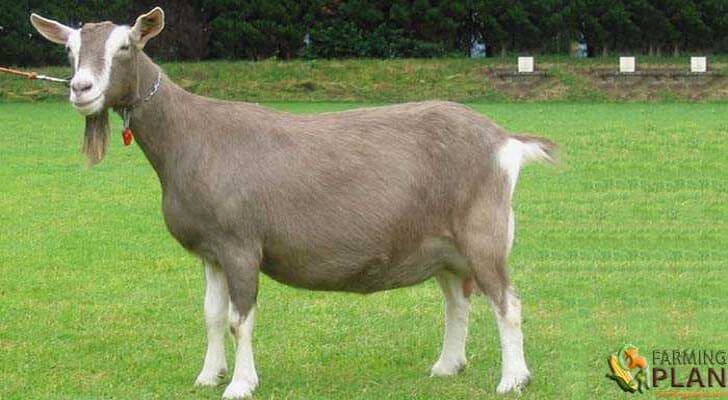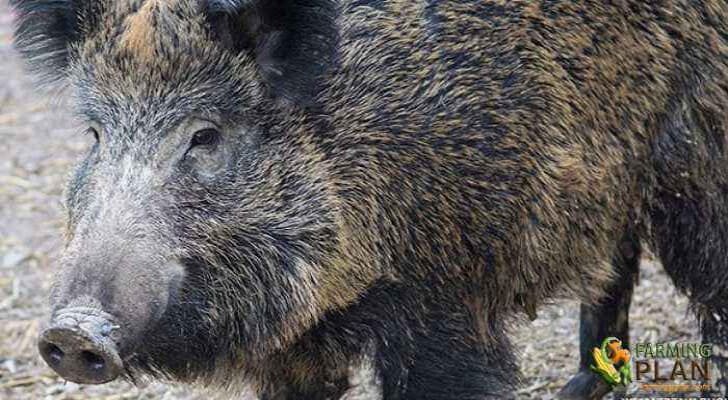African geese are a unique and popular breed among pet owners, farmers, and breeders due to their large size, beauty, and protective nature. These geese are great for farming, helping control pests, and providing eggs and meat. Whether you’re raising them on a farm or as pets, understanding their health needs, behavior, and proper care is essential to ensure they thrive. With the appropriate attention, African geese can be a valuable and rewarding addition to your home or farm.

The Fascinating History of African Geese
The African goose is believed to have originated in China, where it was initially domesticated for its meat and eggs. Over time, it spread across various parts of the world, gaining popularity due to its striking appearance and hardworking nature. These geese were eventually brought to Africa, where they were further refined into the breed we recognize today. Known for their large size and distinctive appearance, African geese became a favorite among farmers for their ability to protect crops and livestock and their usefulness for meat and egg production.
Their history is rooted in providing beauty and utility, making them a valuable asset to farmers. As breeders and farmers began to appreciate their hardiness and the economic benefits they offered, African geese became popular.
Quote: “”The African goose has a long history of providing both beauty and utility to farmers.””
Physical Characteristics of African Geese
African geese are known for their impressive size and unique appearance. On average, they can weigh between 10 and 14 pounds, with males generally more prominent than females. Their most distinguishing feature is the large “”knob”” on the top of their bills, which is more prominent in males and gives them a bold, striking look. Their feathers typically come in shades of white and gray, with some having a darker or more mixed-color pattern.
What sets African geese apart from other breeds is their robust build and the presence of the “”knob,”” which makes them easily identifiable. While other geese breeds, like the Embden or Toulouse, may be similar in size, African geese have a more upright posture. They are known for their strong, protective nature.
Their physical traits, especially their size and temperament, make them ideal for both farming and as pets. On farms, their large size allows them to contribute significantly to meat production, while their alertness and honking make them great guards. As pets, their beauty and calm demeanor (when properly raised) make them a unique and charming addition to the family.
Read More: Kangan Goose: Secrets to Successful
The Nature of African Geese: What to Expect
African geese are known for their strong and protective nature. They are intelligent birds, often very alert to their surroundings, making them excellent guard animals. Their honking is loud and distinct, usually signaling something is amiss, so they are often kept as watchful protectors on farms. Their protective nature can be a significant advantage, as they can alert you to potential threats or intruders, helping to keep your property safe.
African geese are usually peaceful. Still, it can be territorial when interacting with other animals, especially during the breeding season. They may challenge other animals or geese if they feel their space is invaded. With proper socialization, however, they can get along with other farm animals like chickens and ducks.
African geese can be managed by both beginners and experienced owners. While their protective nature and need for space might be better suited for someone with some experience, beginners can still care for them if they are willing to learn their needs and behaviors. With proper care, they make great companions for both novice and experienced goose owners.
Read More: Hawaiian Goose: How To Start A Farm At Home
Health Issues in African Geese and How to Prevent Them
Like all animals, African geese can face specific health issues if not correctly cared for. Some of the most common health problems include bumblefoot, an infection of the feet often caused by poor living conditions, and respiratory problems, which can occur due to damp, unsanitary environments.
Bumblefoot: typically happens when the geese are kept on hard, rough surfaces for extended periods. It leads to painful swelling on their feet, which can become infected. To prevent bumblefoot, ensure their living space has clean, soft bedding, such as straw or grass, to cushion their feet. Regularly check their feet for any signs of infection.
Respiratory problems: are often caused by wet, cold, or poorly ventilated living areas. To avoid respiratory issues, make sure their shelter is well-ventilated and dry. Avoid overcrowding and ensure that they have plenty of space to move around. A clean environment is essential for preventing respiratory infections.
Other common issues include obesity, which can happen if geese are overfed, and parasites, such as worms or mites. To prevent parasite issues, it’s essential to deworm your geese regularly. Your veterinarian can advise you on the best deworming schedule and products to use. Keeping their environment clean, providing a balanced diet, and deworming them regularly can help avoid these problems.
To keep your African geese healthy year-round, follow these tips:
- Regularly clean their living area to avoid infections and pests.
- Provide a balanced diet of grains, vegetables, and access to clean water.
- Ensure they have plenty of space to roam, especially in warmer months.
- Regularly check for signs of illness and seek prompt veterinary care if needed.
Farming with African Geese: A Step-by-Step Guide
Raising African geese on a farm can be a rewarding experience. Still, it requires careful planning and attention to their needs. Here’s a step-by-step guide to help you set up and maintain a healthy, productive flock of African geese.
Setting Up a Proper Space
African geese need ample space to roam and forage. They are active and enjoy moving around. Ideally, they should have access to a large, enclosed area to graze on grass and explore. The space should be secure from predators, with a sturdy fence or enclosure to keep them safe. They will also need access to a pond or water source to swim in, as they love to bathe.
Feeding and Watering
A balanced diet is key to keeping your geese healthy. African geese eat a variety of foods, including:
Grains: Corn, wheat, and oats are good choices.
Greens: Fresh grass, vegetables, and herbs are essential for their health.
Water: Always provide access to fresh, clean water. Geese drink a lot, so make sure their water containers are large enough to meet their needs.
Providing Proper Shelter
Even though African geese are hardy, they need a safe and dry place to sleep, especially during cold or rainy weather. A simple, well-ventilated barn or shed will work, but it should be free of drafts. Make sure the shelter is large enough for the entire flock to sleep comfortably without overcrowding. Bedding, such as straw or wood shavings, should be provided to keep them warm and dry.
Step-by-Step Care from Hatching to Adulthood
Hayou starts with eggs and ensures they are incubated at the correct temperature and humidity. The eggs usually hatch in 28 to 30 days.
Caring for Goslings: Once hatched, goslings need a warm environment (around 90°F) for the first few weeks. Provide them with a safe space, access to food and water, and protection from predators. Gradually lower the temperature as they grow to help them adjust to the outside environment.
Adulthood: As your geese reach adulthood (around 6 months), they will become more independent but still need a secure environment and steady food and water supply. During the breeding season, males may become more territorial, so be prepared to manage their behavior.
What to Consider for Farming African Geese
When farming African geese, it’s essential to consider the following:
Space: They need plenty of room to graze and roam. A minimum of 1 acre per 5-6 geese is ideal.
Feeding: Ensure they have access to a balanced diet and fresh water.
Environment: A clean, dry, and secure environment is necessary to keep them healthy and safe. Regularly clean their shelter and remove any waste to prevent diseases.
Protection: Protect your geese from predators like foxes, raccoons, or dogs by securing their enclosure.
Read More: German Laying Goose: Farmer Proven Strategies
African Geese for Breeding: What You Need to Know
Breeding African geese can be a rewarding experience, but it requires attention to detail and proper care. Here are some essential tips and best practices to ensure successful reproduction:
Breeding Tips and Best Practices
Choosing Breeding Pairs: When selecting a breeding pair, choose healthy, mature geese (around 1-2 years old). Ideally, you should have one male (gander) for every 2-3 females (geese). This ensures that the females are not over-bred and that the male has enough attention to successfully mate.
Breeding Season: African geese usually breed in the spring, when the weather is warmer and the days are longer. They may start laying eggs as early as 2 years old. Still, waiting for them before it’s essential to wait for them before attempting vi the area. Providing a sheltered spot with plenty of straw or soft bedding is vital for a comfortable nest. Ensure that the nesting area is far from disturbances or predators.
How to Care for Baby Geese (Goslings)
Warmth: Goslings must be kept warm during their first few weeks. Set up a brooder with a heat lamp to maintain a temperature of around 90°F. Gradually reduce the temperature as they grow.
Feeding: For young waterfowl, give goslings a high-quality starter feed. This feed provides the proper nutrients for their rapid growth. As they mature, you can introduce fresh greens and small amounts of grain.
Water: Make sure goslings have constant access to clean water. Ensure the water isn’t too deep, as they may avoid making it best for younger goslings.
Protection: Goslings are particularly vulnerable in their early stages and should be kept safe from predators such as dogs, foxes, or birds of prey by always being in a secure, enclosed area.
When to Expect Eggs and How to Protect Them
Egg Laying: Female African geese usually begin laying eggs in the early spring. They can lay anywhere from 15 to 30 eggs per breeding season. The eggs are typically laid early in the morning, and the female will begin incubating them once she has a full clutch.
Incubation: African geese will incubate their eggs for about 28 to 30 days. They should be undisturbed to prevent stress and ensure the eggs remain at the proper temperature. Maintaining the appropriate humidity and temperature levels if you’re using an incubator.
Protecting the Eggs: During the incubation period, it’s crucial to protect the eggs from predators. Make sure the nesting area is safe and secure. If you’re using a nesting box, ensure it has a cover to prevent predators from accessing the eggs.
Marketing African Geese: Turning Your Flock Into a Business
Suppose you’re looking to turn your African geese into a profitable business. In that case, marketing is crucial in reaching potential buyers and ensuring your geese find good homes. Here are some key strategies for successfully marketing and selling your geese:
How to Market Geese for Sale
Online Marketplaces: List your geese on popular online platforms such as Craigslist, Facebook Marketplace, or local farming groups. These platforms are great for reaching people in your area looking for geese for pets or farming purposes.
Farmers Farmers’ Markets and Local Events: Attend farmers’ markets or agricultural fairs where potential buyers can see your geese firsthand. These events also offer networking opportunities with other breeders, farmers, and pet owners.
Social Media: Create a social media presence for your geese business. Platforms like Instagram, Facebook, and YouTube are ideal for showcasing your flock, sharing their stories, and connecting with customers. Post pictures and videos of your geese, highlight their unique qualities, and share care tips.
Word of Mouth: Don’t underestimate the power of referrals. Talk to local farmers, pet owners, and breeders, and let them know you have African geese available for sale. If they are happy with their purchase, they are likely to recommend you to others.
Understanding Demand in the Farming and Pet Industry
Before pricing and selling your geese, it’s essential to understand the demand in both the farming and pet industries. African geese are in demand by farmers who need them for their meat, eggs, and protective qualities, as well as pet owners who appreciate their beauty and friendly nature.
Farming Demand: Farmers may be interested in buying African geese because they can help control pests and provide high-quality meat and eggs. Consider the farming season when marketing your geese, as demand may increase during the spring and summer.
Pet Market: Pet owners looking for unique and low-maintenance pets may also be interested in African geese. These buyers will appreciate your geese’s calm demeanor and beauty, especially if you offer well-social geese.
Tips for Pricing, Packaging, and Selling Your Geese
Pricing: When pricing your geese, consider the costs of raising them, including feed, shelter, and any veterinary care. Research the going rates for African geese in your area to stay competitive. Generally, prices can range from $20 to $100 per bird, depending on age, health, and whether they are sold as pets or for farming purposes.
Packaging: If you’re selling geese as pets, package them in a way that highlights their care and quality. For example, please provide information about their diet, health, and temperament. You can also include a small care guide to help new owners feel confident caring for their geese.
Selling: Be transparent about the geese’s health history and temperament. Provide potential buyers with all the information they need to make an informed decision, such as whether the geese are good with other animals or children. Always ensure the geese are transported safely and securely to their new homes.
Benefits of Owning African Geese: More Than Just Farming
African geese are valuable for farming and offer numerous benefits for hobbyists and pet owners. Here’s why they make an excellent choice for both farmers and those looking for a unique pet:
Why African Geese Are a Good Choice for Hobbyists and Farmers Alike
African geese are versatile birds that appeal to both hobbyists and farmers. Their graceful movements and striking appearance make them an entertaining and beautiful addition to any backyard. For farmers, African geese are hardworking birds that offer practical benefits and a sense of security with their natural guarding instincts.
They also have relatively low maintenance compared to other farm animals, as they don’t require extensive care. Their ability to thrive in different environments, whether a small backyard or a large farm, makes them an appealing choice for many owners.
Benefits Like Eggs, Meat, and Pest Control
Eggs: African geese lay large, flavorful eggs, perfect for making gourmet dishes. These eggs are more significant than chicken eggs and are prized for their rich, creamy taste.
Meat: African geese also provide high-quality meat as they grow large. Their lean and flavorful beef makes them an excellent choice for farmers who raise them for consumption.
Pest Control: One of the most significant advantages of having African geese on a farm is their ability to help control pests. They are natural foragers and will graze on grasses, weeds, and bugs. This makes them an excellent choice for organic farming practices, as they can reduce the need for pesticides by keeping the insect population in check.
Personal Stories and Examples
Many farmers and hobbyists have found great success and satisfaction keeping African geese. For example, a local farmer shared that after introducing African geese to his property, the geese helped eliminate a long-standing issue with weeds and bugs in his garden, reducing his need for chemical pesticides. Not only did the geese keep the pests under control, but they also provided eggs and meat, contributing to the farm’s overall sustainability.
Another hobbyist mentioned that their African geese became a peaceful yet protective addition to their family. They loved watching the geese interact with each other, and their natural beauty became a favorite feature in their backyard. The geese also became wonderful pets for their children, as the birds were friendly and calm after getting used to human interaction.
FAQ
Do African geese need a pond to thrive?
No, they do not. They are content with a shallow tub or kiddie pool deep enough to submerge their heads for cleaning and mating.
What is the typical lifespan of African geese?
With proper care, African geese can live for 15 to 20 years, providing long-term companionship and utility.
How can I differentiate between male and female African geese?
Males (ganders) are generally larger, more aggressive, and lead the group. At the same time, females (geese) are slightly smaller and have different vocalizations.
What do African geese eat?
Primarily grazers, they feed on grass, supplemented with grains like wheat and fresh greens like lettuce and cabbage.
Are African geese suitable for beginners?
Yes, they are intelligent, self-sufficient, and usually excellent parents, making them a good choice for those new to raising geese.
Conclusion
African geese are a versatile and rewarding addition to both farms and homesteads. They offer benefits such as natural lawn maintenance, high-quality meat, and large eggs. Their hardy nature and relatively low maintenance make them suitable for beginners and experienced poultry keepers. By providing proper care, including adequate space, a balanced


